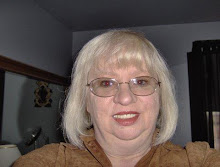I remember 9/11 for different reasons. We were haunted by the same images that haunted millions as they watched desperate people jump from the same roofs between which Philippe Petit danced on a wire a quarter-century earlier. But one of the reasons I remember 9/11 is how it impacted my students and how young I realized they were.
I was teaching at the state university that year - Fresham English - and the majority of my students had moved away from home and into fairly large dorms with new roommates only 10 days before. They had lived comfortable and safe lives for the most part. They were not rich, but they were privileged. They had cell phones, video games, laptops, and whatever clothes they wanted. Most had their own credit cards, and many had cars on campus. They felt grown-up and were enjoying the first taste of personal freedom.
When terrorists flew those planes into the Twin Towers, the Pentagon, and a Pennsylvania field, you could see the fear and uncertainty in the eyes and the reactions of the students. Some had parents who flew fairly often; others had relatives who worked in lower Manhattan. Others were Muslim or Arabic and wondered how they would be viewed by their fellow students. For the first days after 9/11 faculty members tried to help students make sense of what had happened. We answered the unanswerable questions: "Why would anyone do this?" and "Why do they hate America?" For our attempts to answer these questions in an academic way, we were scorned by Conservatives who called us "unpatriotic," which was about the worst thing you could call anyone after 9/11.
As the dust literally and figuratively started to clear, one student - a young Jordanian who had American citizenship by birth - left the campus because he feared for his own safety and didn't know how to handle the names he was called and the shoves he received in the hallways. Another student flew back and forth to her home in New Jersey - just across the river from Manhattan - to attend memorial services for parents of nine of her high school friends. Still other students had friends, relatives, acquaintances who died in one place or another that day, and more still knew of someone who just escaped, someone who was a first responder, someone who was supposed to be on one of the planes or in one of the buildings, but wasn't.
The sememster that began with 9/11 was the hardest semester in which to teach. We were all off our stride for the duration of the term. No one could concentrate fully; everyone picked up more colds; students' grades often took a tumble, and some of us abbreviated our curricula in order to somehow keep everyone on track.
I realized that these college students may be young adults, but emotionally, they were very much children. I was a pre-teen when Kennedy announced missiles in Cuba, a high school freshman when our beloved JFK was killed. I grew up listening to stories of WWII told by a mother who had served as an Army nurse. I had lived through years of bloody images shown during the supper hour for the entire VietNam era. I had watched the race riots of the 60's and saw the blood running down streets. These children hadn't. Nothing in their lives had prepared them for the event that we simply call 9/11. This was their first realization that the world is cruel, that all people do not love each other, and that bad things truly can happen to good people.
As for me, I was so busy dealing with my students that I never checked the names of the dead. Two or three weeks later, I realized that a young man I had routed for on a summer reality show called "Murder in a Small Town" and who had won the $50,000 prize for being the last man standing, was one of the first responders and killed. And much later still, I found out that a man who had been our friend, but with whom we' had no recent contact, died on Flight 93. His name was Don Greene. And he loved to fly.
Friday, September 11, 2009
Subscribe to:
Post Comments (Atom)

No comments:
Post a Comment